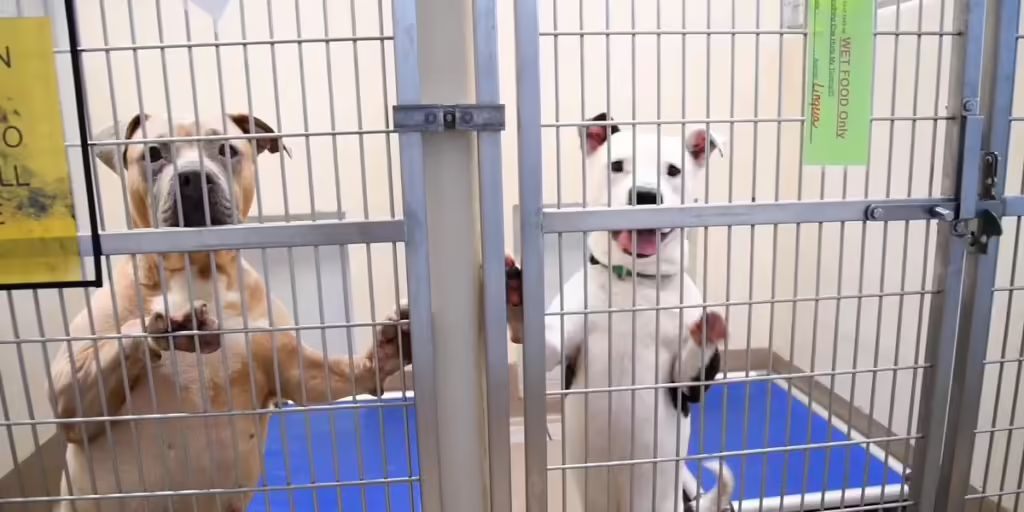Animal Shelters and international registration

In the global fight to protect and care for animals, the World IPASSA Organization (WIO) stands out as a critical entity. By focusing on the international registration of animal shelters, WIO aims to standardize care, enhance accountability, and facilitate global collaboration. This effort is crucial for improving animal welfare standards worldwide.
What is the World IPASSA Organization (WIO)?
WIO is an international body dedicated to advancing animal welfare through the establishment of global standards for animal shelters. The organization provides accreditation, maintains a comprehensive global registry, and supports shelters in meeting these standards. Through its efforts, WIO ensures that animals receive consistent, high-quality care across the world.
Benefits of International Registration with WIO
Standardization of Care: WIO establishes detailed standards for animal shelters, covering aspects such as facility cleanliness, animal health, nutrition, and humane treatment. International registration ensures that shelters adhere to these standards, resulting in a consistent level of care for animals globally.
Enhanced Accountability: Registered shelters are regularly inspected and audited by WIO, which increases accountability and transparency. This process helps ensure that shelters maintain high standards and quickly address any deficiencies.
Facilitation of Collaboration: With a global registry, shelters can easily collaborate on international rescue missions, animal rehoming programs, and the exchange of resources and knowledge. This network promotes a spirit of cooperation, enabling shelters to address global animal welfare issues more effectively.
Improved Funding Opportunities: Donors and funding organizations are more likely to support shelters that are registered with WIO and meet international standards. Registration can enhance a shelter’s credibility and increase its chances of obtaining financial support, which is vital for operations and enhancements.
Training and Education: WIO provides training programs and educational resources to help shelters meet and uphold standards. Continuous education ensures that shelter staff are equipped with the latest knowledge and best practices in animal care.
Data Collection and Research: A global registry maintained by WIO facilitates data collection on animal welfare issues, shelter intake and adoption trends, and the effectiveness of various programs. This data is invaluable for research and for developing informed policies and strategies to improve animal welfare worldwide.
Challenges and Solutions
Despite the numerous benefits, the international registration of animal shelters faces several challenges:
Resource Constraints: Many shelters, especially in developing countries, operate with limited resources and may struggle to meet WIO’s standards. WIO addresses this by offering support and guidance to help shelters improve their facilities and practices.
Cultural and Legal Differences: Animal welfare standards and practices can vary widely across different cultures and legal systems. WIO works to harmonize these differences by promoting universally accepted standards while being respectful of local contexts.
Implementation and Compliance: Ensuring compliance with standards across diverse and numerous shelters can be challenging. WIO employs a robust monitoring and evaluation system to ensure ongoing compliance and provide assistance where needed.
How WIO Enhances Global Animal Welfare
Promoting Best Practices: By establishing and disseminating best practices, WIO helps shelters worldwide provide better care for animals. This includes everything from medical care and behavioral training to facilities management and adoption processes.
Emergency Response: WIO-coordinated shelters can respond more effectively to emergencies, such as natural disasters or large-scale rescues, by pooling resources and expertise.
Public Awareness and Advocacy: WIO raises awareness about animal welfare issues and advocates for stronger animal protection laws and policies globally. This advocacy work helps create a more supportive environment for shelters and the animals they care for.
Animal shelters serve as critical refuges for homeless, abandoned, and abused animals. These facilities provide essential care, medical attention, and a chance for a new beginning for countless animals in need. Understanding the role and importance of animal shelters sheds light on the tireless work of these organizations and the profound impact they have on both animals and communities.
The Role of Animal Shelters
Animal shelters exist to provide temporary housing and care for animals that have nowhere else to go. Their primary functions include:
Rescue and Intake: Shelters rescue animals from the streets, abusive situations, or from owners who can no longer care for them. They also take in strays and animals surrendered by their owners.
Medical Care: Upon arrival, animals receive medical examinations to check for illnesses, injuries, or parasites. Vaccinations, spaying/neutering, and other necessary medical treatments are provided to ensure the animals are healthy and ready for adoption.
Nourishment and Shelter: Shelters provide food, water, and a safe, clean environment for the animals. This care is crucial for the well-being of the animals, many of whom arrive malnourished or traumatized.
Behavioral Assessment and Training: To increase the chances of successful adoptions, shelters often assess and work on the behavior of the animals. Training and socialization efforts help prepare the animals for life in a new home.
Adoption Services: Shelters facilitate the adoption process by matching animals with suitable families. They conduct interviews, home visits, and provide educational resources to ensure that the adoptions are successful and permanent.
Importance of Animal Shelters
Reducing Homelessness and Euthanasia: Shelters play a crucial role in reducing the number of homeless animals on the streets and minimizing the need for euthanasia. They offer a humane solution for animals that would otherwise face dire circumstances.
Community Health and Safety: By managing stray populations and ensuring that animals are vaccinated and healthy, shelters contribute to the overall health and safety of the community. They help prevent the spread of diseases and reduce the risk of animal-related incidents.
Support for Pet Owners: Shelters often provide resources and support for pet owners, including low-cost spaying/neutering, vaccinations, and pet care education. This support helps prevent unwanted litters and promotes responsible pet ownership.
Advocacy and Education: Many shelters engage in advocacy and educational efforts to promote animal welfare. They raise awareness about issues such as animal cruelty, the importance of spaying/neutering, and the benefits of adopting rather than buying pets.
Challenges Faced by Animal Shelters
Despite their critical role, animal shelters face numerous challenges:
Overcrowding: Many shelters are overwhelmed by the number of animals they receive, leading to overcrowded conditions and limited resources.
Funding and Resources: Shelters often operate on limited budgets and rely heavily on donations and volunteers. This can make it difficult to provide the level of care and services that the animals need.
Emotional Toll: The staff and volunteers at animal shelters often face emotional stress due to the nature of their work. Dealing with neglected, abused, or euthanized animals can be heart-wrenching and mentally taxing.
How You Can Help
There are several ways individuals can support animal shelters:
Adopt, Don’t Shop: Choosing to adopt a pet from a shelter rather than buying one from a breeder or pet store helps reduce the number of homeless animals.
Volunteer: Shelters always need volunteers to help with animal care, administrative tasks, and events. Volunteering your time can make a significant difference.
Donate: Financial contributions, as well as donations of food, supplies, and other essentials, are crucial for shelters to continue their work.
Foster: Temporarily fostering animals can alleviate overcrowding in shelters and provide a home environment for animals in need of extra care.
Advocate: Raising awareness about the importance of animal shelters and advocating for animal welfare policies can help bring about positive change.
Conclusion
The international registration of animal shelters under the WIO framework is a crucial step toward improving global animal welfare. By standardizing care, enhancing accountability, facilitating collaboration, and providing training and resources, WIO ensures that animals receive the highest quality of care no matter where they are in the world. Supporting WIO and advocating for the international registration of animal shelters is a vital endeavor for advancing the well-being of animals and promoting a more compassionate and effective global network of animal shelters. .
Animal shelters are vital institutions that provide care, hope, and a second chance for countless animals. Their work benefits not only the animals but also the broader community by promoting health, safety, and compassion. Supporting animal shelters through adoption, volunteering, donations, fostering, and advocacy is a meaningful way to contribute to the well-being of animals and the betterment of society.
